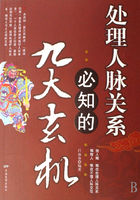To be happy is necessarily the wish of every finite rational being, and this, therefore, is inevitably a determining principle of its faculty of desire.For we are not in possession originally of satisfaction with our whole existence- a bliss which would imply a consciousness of our own independent self-sufficiency this is a problem imposed upon us by our own finite nature, because we have wants and these wants regard the matter of our desires, that is, something that is relative to a subjective feeling of pleasure or pain, which determines what we need in order to be satisfied with our condition.But just because this material principle of determination can only be empirically known by the subject, it is impossible to regard this problem as a law; for a law being objective must contain the very same principle of determination of the will in all cases and for all rational beings.For, although the notion of happiness is in every case the foundation of practical relation of the objects to the desires, yet it is only a general name for the subjective determining principles, and determines nothing specifically; whereas this is what alone we are concerned with in this practical problem, which cannot be solved at all without such specific determination.For it is every man's own special feeling of pleasure and pain that decides in what he is to place his happiness, and even in the same subject this will vary with the difference of his wants according as this feeling changes, and thus a law which is subjectively necessary (as a law of nature) is objectively a very contingent practical principle, which can and must be very different in different subjects and therefore can never furnish a law; since, in the desire for happiness it is not the form (of conformity to law)that is decisive, but simply the matter, namely, whether I am to expect pleasure in following the law, and how much.Principles of self-love may, indeed, contain universal precepts of skill (how to find means to accomplish one's purpose), but in that case they are merely theoretical principles;* as, for example, how he who would like to eat bread should contrive a mill; but practical precepts founded on them can never be universal, for the determining principle of the desire is based on the feeling pleasure and pain, which can never be supposed to be universally directed to the same objects.
*Propositions which in mathematics or physics are called practical ought properly to be called technical.For they For they have nothing to do with the determination of the theoretical they only point out how the certain must is to be produced and are, therefore, just as theoretical as any propositions which express the connection of a cause with an effect.Now whoever chooses the effect must also choose the cause.
Even supposing, however, that all finite rational beings were thoroughly agreed as to what were the objects of their feelings of pleasure and pain, and also as to the means which they must employ to attain the one and avoid the other; still, they could by no means set up the principle of self-love as a practical law, for this unanimity itself would be only contingent.The principle of determination would still be only subjectively valid and merely empirical, and would not possess the necessity which is conceived in every law, namely, an objective necessity arising from a priori grounds; unless, indeed, we hold this necessity to be not at all practical, but merely physical, viz., that our action is as inevitably determined by our inclination, as yawning when we see others yawn.
It would be better to maintain that there are no practical laws at all, but only counsels for the service of our desires, than to raise merely subjective principles to the rank of practical laws, which have objective necessity, and not merely subjective, and which must be known by reason a priori, not by experience (however empirically universal this may be).Even the rules of corresponding phenomena are only called laws of nature (e.g., the mechanical laws), when we either know them really a priori, or (as in the case of chemical laws)suppose that they would be known a priori from objective grounds if our insight reached further.But in the case of merely subjective practical principles, it is expressly made a condition that they rest, not on objective, but on subjective conditions of choice, and hence that they must always be represented as mere maxims, never as practical laws.This second remark seems at first sight to be mere verbal refinement, but it defines the terms of the most important distinction which can come into consideration in practical investigations.
IV.THEOREM II.
A rational being cannot regard his maxims as practical universal laws, unless he conceives them as principles which determine the will, not by their matter, but by their form only.
By the matter of a practical principle I mean the object of the will.This object is either the determining ground of the will or it is not.In the former case the rule of the will is subjected to an empirical condition (viz., the relation of the determining idea to the feeling of pleasure and pain), consequently it can not be a practical law.Now, when we abstract from a law all matter, i.e., every object of the will (as a determining principle), nothing is left but the mere form of a universal legislation.Therefore, either a rational being cannot conceive his subjective practical principles, that is, his maxims, as being at the same time universal laws, or he must suppose that their mere form, by which they are fitted for universal legislation, is alone what makes them practical laws.
REMARK.
The commonest understanding can distinguish without instruction what form of maxim is adapted for universal legislation, and what is not.















